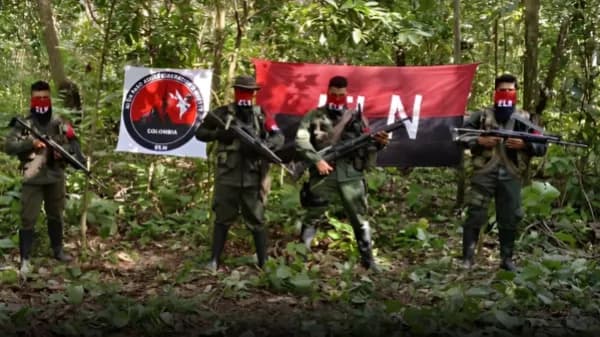SÃO PAULO – Mediated by the Church, peace talks established earlier this year between the Colombian government and left-wing guerrilla organization Comuneros del Sur have led to unprecedented progress, with an agreement for a bilateral ceasefire and the group’s pledge to put down its guns.
But that achievement has a bittersweet aftertaste, given that it’s connected to the failure of the peace negotiations with the Ejército de Liberación Nacional (ELN, or National Liberation Army), a major guerrilla organization.
In 2025, great efforts must be made if the South American country wants to secure peace.
The Comuneros del Sur used to be part of the ELN, and broke with it in May. According to Father Hector Henao, a long-time peace broker who has been representing the Church in the mediation of negotiations between guerrillas and the government for more than three decades, the dialogue between the administration of President Gustavo Petro, himself a former member of a guerilla group and Colombia’s first left-wing leader in recent history, and the Comuneros front may have been a central element in the breakdown with the ELN.
“Each side has its own version of what happened. For the ELN, the Comuneros del Sur left it after the government established direct peace talks with them. For the government, the division was caused by their own internal problems,” Henao told Crux.
Petro’s administration and the ELN – the oldest guerrilla group in Colombia, maintaining an armed presence since 1964 – had been discussing peace since the end of 2022. Some progress had been achieved, especially a ceasefire that endured one year and expired in August of 2024. The guerrillas, however, argued that the government failed to meet a number of demands it had presented and the process began to lose strength.
“It became a critical situation. For the ELN, it looked unacceptable that the government was talking to them on the national level and to the Comuneros del Sur, one of its factions, on the local level,” Henao explained.
The Church cannot involve itself in such political matters, he argued, given that “its sole purpose is to alleviate the people’s sufferings when they’re caught in the middle of such conflicts.”
“We take part in such dialogues for humanitarian reasons. Our idea is to always keep advancing towards peace,” Henao said.
That’s why the deal with the Comuneros front was celebrated by the Colombian Church as an important step. The group’s operations in Nariño used to have a relevant local impact and a ceasefire will be very important for the local residents, he added.
“They even talked about handing their firearms and destroying them,” Henao said.
After two days of discussion, the parties agreed to stop fighting for 180 days. The Comuneros accepted to install their troops in temporary special locations. Special mining districts will be established in order to ease the transition from illicit activities in the zone – especially illegal mining and coca production – to legitimate productive activities.
In the opinion of Diego Arias, an analyst of matters related to conflict and peace in Colombia, the deal with the Comuneros front was a major achievement for Petro and his “total peace” strategy.
“It will not lead to the organization’s integration to national politics [as it was the case with the Colombian Revolutionary Armed Forces, known as FARC], but it will transform the territory where it has been active,” Arias told Crux.
When it comes to resuming negotiations with the ELN and FARC’s dissident groups, however, he doesn’t see much potential.
“With groups like Segunda Marquetalia, highly involved in drug trafficking, too fragmented, and without a clear resolution to attain peace, I don’t think there’s much to be done,” he said.
Talks with ELN, in Arias’s opinion, were poorly planned. The organization wants to promote its agenda, imposing its views on the nation’s economic model, themes of national security and military doctrine, Arias said.
“Those aren’t things that should be negotiated with a guerrilla. Many things the ELN desires to achieve would represent a revolution by decree if they were adopted,” he said.
“Depending on the next administration, all those efforts may prove to be ineffective [anyway],” he said.
Henao said that with the expiration of the ELN’s ceasefire, attacks and skirmishes resumed in September. Support from Colombians for Petro’s negotiations strategy was impacted by the political polarization in the country, but a small majority still thinks talks are the best way out of this violent scenario in Colombia. A new meeting was agreed by the parties for January.
“We hope that in 2025 the dialogue with the ELN will begin again, now with more strength. And other negotiation processes, with distinct groups,” Henao said.














